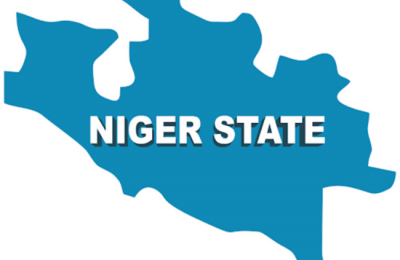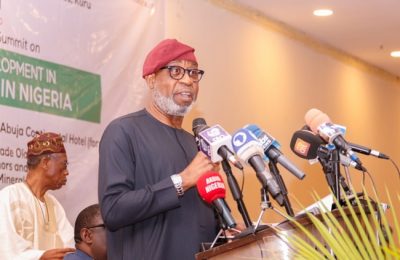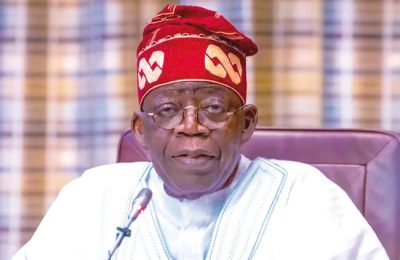In one of his hit tracks, Nigerian pop singer Olamide presents the metaphor of the foolish man with free money. Owo wa l’owo yin (You have money), he sang, “e je ka ba yin na (let’s help you spend it). The persona even warned: “E e le na’wo yen tan o.” (You can’t even exhaust the money). Olamide was only reinventing a thesis that Waka singer Salawa Abeni had proposed in the 90s, namely that alagbari (the brainy one) is master of mugun (the foolish one), and so alagbari uses mugun’s money “to eat aroso, to eat ofada, and to do Albarka.” This is what the West, through IMF, has done to Africa, a continent plagued by pestilential leaders, for ages. Currently, Nigerians and Kenyans are embroiled in austerity measures, plagued by the same Structural Adjustment Programmes (SAP) of the 90s that rendered the economy prostrate and sapped the citizenry of energy. No sooner had President William Ruto come into office than he scrapped subsidies on maize flour and fuel. Ruto needed a loan, and the IMF told him to kill his people to access it. In his insightful article, The IMF’s Policies Are Destroying Kenya, Again (Jacobin.com), Nicholas Ford writes: “IMF diktats have pushed Kenya into a spiral of rising debt and unaffordable prices for food and fuel. New loans have come with strings attached that make the crisis even worse — but it’s good news for lenders in the West.” Of course. Kenyans paying through the nose for sugar, vegetables and maize flour are just like the millions of Nigerians who have just realized that gari could cost a fortune.
If Ruto pretended to be interested in the people’s pain while increasing VAT on fuel from 8 to 16 percent, Tinubu couldn’t be bothered: “Subsidy is gone,” he announced cavalierly on inauguration day on May 29, 2023, plunging Nigerians into deep misery. Nigeria’s IMF-induced misery reminds me of the malady in Ghana, a country that killed its own rice industry and now imports rice from the United States. Ghana needed a loan and Lord IMF said it needed to scrap subsidies to rice farmers in the northern part of the country. Ghana then used the loans it got to import food. In other words, the IMF crippled Ghana’s rice farming as a precondition for loans that still funded the West. Don’t blame IMF: Alagbari is master of mugun. Mugun (or mugu in Nigerian Pidgin) sounds dangerously close to Magun, the Yoruba word for a thunderbolt associated with adultery. A ticket tout in the Challenge area of Ibadan reportedly died via this means recently. The point I am making is that if you are foolish, you already have your death sentence. IMF sees raw materials in the “partner” countries and goes for it, asking the countries to import finished products with the loan it gives to them. And the leaders agree because there’s a hefty bribe in the deal.
In November 1996, a publication of Lord IMF reporting on a conference it sponsored in Jakarta, Indonesia, gave this false prophecy: “ASEAN’s sound fundamentals bode well for sustained growth.” A year later, the IMF was singing a different tune. If Malaysia, say, has any silver lining today, it is precisely because it turned its back on IMF orthodoxy, recovering faster from the 1997 Asian economic crisis than some IMF-compliant countries. Malaysia is the country that made Nigeria to, as it were, import its own palm oil, creating an alagbari versus mugun story at a local level, just like the case of the Chinese criminal outfit, Zhongashan, which entered into an agreement with the Gbenga Daniel government on a free trade zone in Ogun State in 2007, built only a perimeter fence, then went to court to obtain fraudulent orders when the Ibikunle Amosun government revoked the contract in 2015. The Chinese are here just like anybody else: to see what they can loot. Nigeria has money: they will help Nigeria spend it.

The IMF is always helping foolish countries to spend their money, and plunging them into deep poverty. Ask Latin America, a region it forced to adopt the so-called free market policies. Alexander Main puts the point poignantly in his NACLA Report on the Americas, published in March 2020: “Today, as in the past, the U.S. government influences the economic and political trajectories of Latin American and Caribbean countries through sanctions, control of international financial institutions, trade policy, and aid programs. These varied tools of economic statecraft are all, according to official discourse, deployed with the objective of improving the lives of Latin Americans. Yet, they have made life harder for the majority of Latin Americans.” Everyday, you see hordes of Latin Americans trying to invade the United States, a prime source of their pain.
At the start of the 1980s, most African leaders caught the bug of SAP, cutting social spending and with it investments in education and health care. With SAP, sub-Saharan Africa transferred some $229 billion to the West between 1980 and 2004, via debt payments. Olusegun Obasanjo came in 1999 and floated debt forgiveness, but the West never forgives, and by the 2020 budget, Nigeria’s interest payments on loans had reached a massive 97 per cent. Last year when Tunisia wanted a bailout package worth nearly $2 billion from the IMF, it was asked to scrap subsidies. President Kais Saied refused, knowing that his people were going to explode. He said the IMF’s conditions would exacerbate domestic inequality and social tension. Exactly!
If President Bola Tinubu persists in his subsidy removal and naira floatation policies, he will merely re-write the story of the 90s when President Babangida said: “We cannot and should not abandon this programme midway because the pains of trying to re-introduce it at a later stage will be worse than the current pains.”
Here, I restate some of the suggestions I made in “Tinubu in troublous times”: Bring down the cost of fuel and modify naira floatation; look for a middle ground on both policies. Stop the illegal movement of fuel beyond Nigeria’s borders. Create a smart farming initiative. Sack the NNPCL leadership. Place a total embargo on foreign trips in MDAs. Stop further loan taking. Scrap useless agencies. Place a ban on the use of foreign-made vehicles by MDAs. Mandate ministers to cancel ALL requests for new computers in budgets, and all vehicle requests. Unleash state police immediately. To these I add: let Nigeria’s mega churches begin a smart farming programme: they have the resources.

Re: Nigerians, cool temper, poverty is on the way…
After reading your highly informative and educative article titled: “Nigerians, cool temper, poverty is on the way…”, I cannot but wonder why our leaders and politicians are so “wicked and Insensitive to us and our plight”. It’s so so sad.
Sanni Taofik (+234 805 225 4329)
READ ALSO: Suspected ritualist sells human skull, legs for N70,000 in Ibadan







